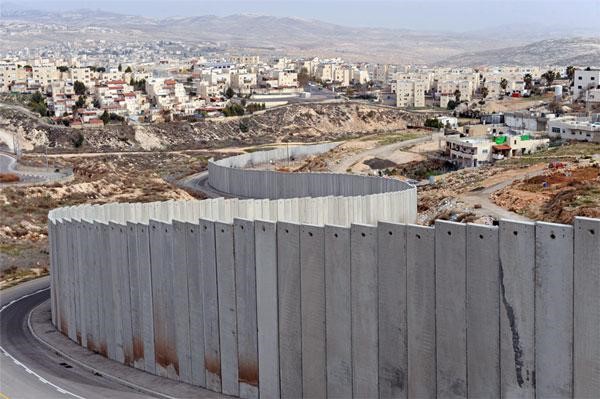The Israeli-Palestinian Quagmire
Few events in the world have been as polarizing as the creation of the state of Israel, which has been celebrating 70 years of existence this week. After years of living in the diaspora across Europe and the Middle East, undergoing pogroms, and a kind of brutal persecution that culminated in the Holocaust, Hitler’s almost successful campaign to eliminate the Jews once and for all, Jews finally had a home. David Ben Gurion, Israeli’s founder and first president declared Jews everywhere could come and settle in their new “homeland.”

For Palestinians, many of whom lost their homes in the chaos that followed Israel’s independence, Israel’s creation is known as Nakba, “the catastrophe.” From the beginning of the 20th century, they have watched in horror as Jews came to settle land which they had occupied for centuries, and eventually gained formal title to half of it through the UN partition plan approved in 1947. The Palestinians rejected this plan and have been on the losing side of the argument ever since.
The Palestinian-Israeli conflict has been going on throughout this period, ebbing and flowing in its intensity but always simmering below the surface, ready to explode with one incendiary incident or another. Clashes in Gaza against these Israeli independence celebrations are the latest manifestation of this seemingly eternal conflict, with more deaths to add to the roster of suffering of both sides.

For Palestinians, Israeli independence is known as Nakba Day, which means catastrophe or cataclysm. 700, 000 Palestinians were expelled or fled from their homes as Israeli independence was met by war from its Arab neighbors.
Most experts agree that the much vaunted two-state solution, which according to polls majorities of both Israelis and Palestinians consider a way to break this decades long impasse, is a viable resolution to the conflict. This entails Israel giving back the West Bank and together with the Gaza strip, devolved to the Palestinians in 2005, which would form a demilitarized Palestinian state. In return the Palestinians would acknowledge Israel’s right to exist and cease all attacks on the Jewish state.
So why has this apparently feasible resolution to the problem, backed by most of the respective populations, has remained unattainable. The main problem is narratives, and both side’s inability to reconcile each other’s narratives to the goal of peaceful coexistence that both peoples are ostensibly striving for.
From the Israeli perspective, the legitimacy of the state, questioned by the Arab world from the beginning, is beyond dispute, since it was the world’s most senior governing body, the newly instituted United Nations, which sanctified the right of Jews to half of Palestine. It was the Palestinians and Arab neighbors who rejected the partition plan, immediately attacking the new-born state with an intent to “drive the Jews into the sea.” It was war, and bad things happen in war, an acknowledgment by Israel that hundreds of thousands of Palestinians were expelled from their home.
It was the implacable Arab hostility to the state of Israel that has been the main stumbling block to lasting peace which Israel claims to be pursuing. How can you negotiate with somebody who doesn’t recognize your right to exist?
After the establishment of the Palestinian Liberation Organization (PLO) in 1964, this new player started a series of spectacular attacks against Israelis, such as the kidnapping and execution of 11 Israeli athletes at the 1972 Olympic Games in Munich or the hijacking of an El AL plane that resulted in the spectacularly successful raid on Entebbe. These were seen as terrorism by Israel and acts of war by the Palestinians but elevated the visibility of active Palestinian resistance. Yet Israelis felt they were dealing with a people bent on obliterating their citizens in attacks specifically targeting civilians. The very morality of the Palestinians was called into question and certainly Yasser Arafat, the chairman of the PLO, the embodiment of that enemy set on destroying the Jews.
The six-day war of 1967 completely changed the power dynamic of the region, with Israel once again successfully defeating their Arab nemesis (Egypt, Syria and Jordan) and occupying land of those three countries, namely the Sinai (Egypt), the West Bank (Jordon) and the Golan Heights (Syria). This occupation was deemed illegal by the international community.

The polar opposite views of the conflict

Israel claims that this occupational was strategic and provided a bargaining chip in future negotiations with its Arab foes. To prove its point, Israel handed back the Sinai to Egypt after the Camp David Accords in 1977. However, the West Bank became the target for Jewish settlements where, for religious or economic reasons, many Israelis have moved over the last five decades. Today, over 400,000 Israelis live in land considered illegally occupied by Israel.
However, Israel continues to say that this occupation is negotiable. The problem is the unwillingness of the Palestinians to seriously negotiate. After the collapse of the Oslo Accords of 1993, which according to the Israelis was a result of the unceasing terrorist attacks by Palestinians, Israel points to negotiations in 2000, where it said it was willing to give up most of the West Bank, as proof of Palestinian intransigence when the deal was rejected.
Israel thus sees itself as victim of Arab hostility and a world which is generally anti-Israel for what many Israelis believe are brazenly anti-Semitic reasons. It has always been willing to compromise, it claims, but has been unable to find an honest partner, made even more difficult by the Palestinians now being split between Hamas, who vows to destroy Israel, and the Palestinian Authority (in essence the PLO), which recognizes Israel’s right to exist.
It would be hard to intentionally design a more diametrically opposite view of the conflict than that harbored by the Palestinians. From their point of view, after centuries of occupying the same land of Palestine, they were forced the accept the imposition of a deal that took half of their land and gave it to someone else, which obviously was unacceptable.
According to the Palestinians, the United Nations, in a world where half the world was under the control of the colonial powers, lacked legitimacy. After all, it was not the Arabs who had attempted to annihilate the Jews, but rather the Europeans, who were now placating their guilt by giving the Jews a state in a land where another people lived. Although it was the Germans who carried out the Holocaust, Britain, the US, Canada and other countries did little to help the Jews, turning away thousands of refugees who were forced to go back to Europe and face certain death.

The wall built by Israel is a symbol of the inability to reconcile the needs of both peoples
Forced into exile, but largely ignored by the world, the Palestinians felt the only way to force the issue onto the world stage was by constructing an armed wing that could attack the Israelis violently. Indeed, it was only after the PLO was formed that the Israelis got serious about negotiating, acknowledging Golda Meir’s statement that Israel was perfect for the Jews, being a land without people for a people without a land.
Life for Palestinians deteriorated further after the 1967 war, when Israel came to directly govern the West Bank, and have been since then exposed to the daily humiliation any occupation by a foreign power tends to produce.
Palestinians also complain about the lack of a legitimate negotiating partner among Israelis, and indeed Israel is bitterly divided in much the same manner as Palestinians in terms of how to arrive at peace. After the Oslo Accords mentioned above, Israeli prime-minister Yitzak Rabin was assassinated by a radical Israeli and the prime ministers that have followed have not been serious about peace and have done everything to detonate as rapprochement with the Palestinians. Israel’s further expropriation of Palestinian lands and establishment of more settlements in the West Bank illustrates Israel’s lack of seriousness in accepting the Palestinian right to a sovereign state.
Apportioning blame to the other side has been a tactic that has served neither side, and clinging to the narrative which apportions its side the moral high ground has severely retarded progress. The Arab countries have used Palestinians for their own internal political purposes, while Israel knows that with the unflinching backing of the US, which has passed on billions of dollars of aid, and the US Jewish community, another source of financial support, it has the military upper hand.
Israelis point to the tiny size of its country, the size of Sergipe, in contrast to the extensive Arab lands, and in essence saying, “all we want is this tiny sliver of land” while the Palestinians are trying to take away even that. The Palestinians are saying all they want is a tiny sliver of land to call their own, after their lands were violently seized from them all those years ago.
The impasse, a constant threat to a region beset by tensions and possible armed confrontation, is truly a tragedy where lack of political will has prevented a lasting solution that would ease the suffering of these two peoples thrust together by history.